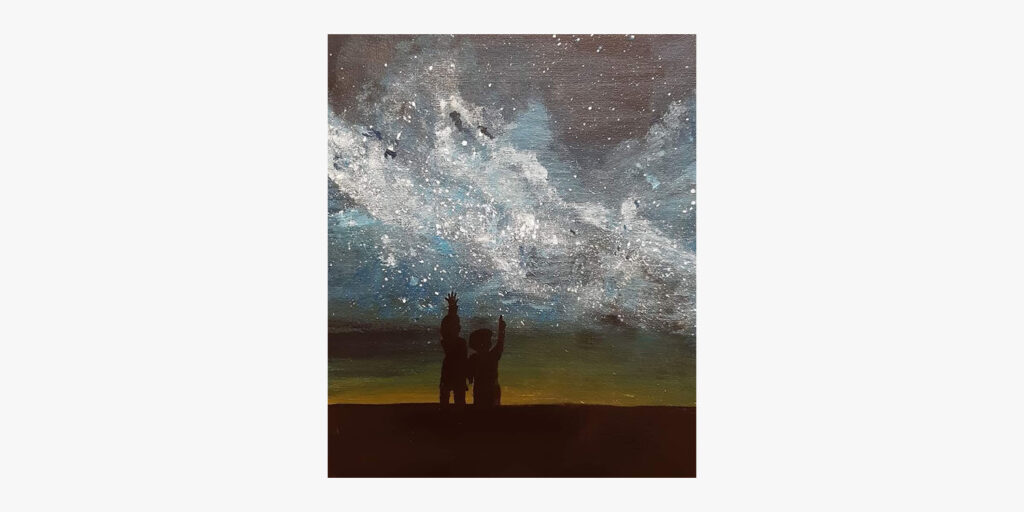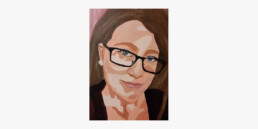A guest blog by Krystina Cheshire.
I have such a fear of letting people down. Sometimes I feel like I’m seen as a problem by other people because I am different, and I hate that. The reality is I don’t think or feel the same, I can’t focus in the same way and what motivates me is different. I lead with my emotions and they dictate what I do. I am different and society doesn’t react well to anything that’s different. The battles I face every day are also not the same and therefore I feel other people can’t relate or don’t understand me. In order to understand something, you have to first learn about it to know it. When people don’t know about something they tend to judge. Judging leads to criticism and a lack of compassion which can lead to a breakdown in relationships. Positive relationships are fundamental to a happy and healthy life and so a change is needed.
When we hear the term Attention Deficit Hyperactivity Disorder or ADHD, quite often we find that we imagine a young boy who can not concentrate and is bouncing off the walls, fidgety, forgetful, highly energetic, argumentative and generally just difficult to manage. In the UK between 2% and 5% of school aged children are considered to have ADHD, although the actual figure is thought to be much higher if we think of the children who go undiagnosed. This tends to be the case particularly for girls. This is mainly due to girls exhibiting their ADHD traits differently or being able to mask their symptoms, particularly if they also suffer with anxiety. When the diagnostic criteria was created to assess ADHD they focused on male symptoms, making it harder to be diagnosed as a female and also ignoring certain symptoms which, while prevalent in many individuals with ADHD, are not even on the criteria. Many people don’t realise that ADHD is a life long neurodevelopmental condition. It is something you are born with. It is genetic. There are physical differences in the brain and how it works that cause individuals with ADHD to think, feel, interpret and react to things differently. It is not a choice or something they can control. For many individuals with ADHD, their symptoms become easier to manage and less obvious as they enter adulthood, simply because they have learned to adapt. At this point their symptoms may no longer have a significant impact on how they live their life and it would seem their ADHD has disappeared. However, ADHD statistics UK estimates that between 3% and 4% of adults have ADHD and many of these individuals will not have a formal diagnosis. A rise in awareness and understanding of ADHD has led to an increase in diagnosis, particularly in women. I am one of those women.
I had a good upbringing and was well cared for growing up. As a child I was shy, lacking in confidence and self-esteem, but I loved art and music and anything creative. I did not have many friends and I never really understood why. I was bullied throughout most of my primary and secondary education and experienced a lot of social anxiety. I was so anxious about getting into trouble or disappointing those around me that I often bit my tongue and kept my thoughts to myself while going along with things, especially in school. When I didn’t hold it in or if I spoke my mind, things did not go well for me. I was a people pleaser and wanted to make my parents and teachers proud. As a result, I was no trouble at school. I achieved academically, always did my homework, learned how to manage my time so I was always early for everything out of fear of being late. I would pack, check and double check my school bag to ensure I never forgot anything. I hated being anywhere new or trying anything new. The only criticism I ever got was for not putting my hand up in class and for not believing in myself. I was also constantly apologising for things that were not always my fault or within my control. People would describe me as polite, mature, sensible, responsible, too serious and very sensitive with a tendency to become overwhelmed and stressed. I struggled with emotional regulation and felt every emotion very intensely which caused issues in my relationships and gave me very hard and steep learning curves. I never needed as much attention as those around me, because I was always ‘OK’, and therefore I felt I didn’t get much.

As I entered adulthood I appeared to be doing well. On the outside people would see a woman who was on it, super organised and efficient, helpful and agreeable. You wouldn’t think there was a problem. But inside I suffered deeply with insecurities, anxiety and overthinking. Perfectionism is exhausting. Living my life in fear of how others would perceive me if I failed or didn’t live up to their expectations. As a result, I got to my 30s, I seemed to have the perfect life, a husband, a home, two beautiful children who mean everything to me and my career that I am very passionate about. But I was deeply unhappy and I didn’t have a clue who I was and what I wanted. I had done the set routine to achieve the standard life goals yet did not feel happy.
I’d spent so long thinking about others, agreeing just to avoid conflict and putting my own wants and needs last that I found my mental and physical health falling apart. As the woman of the house there is an expectation that you’ve got it all covered. If anyone needs anything they’ll ask you where it is and if something isn’t done, they’ll ask you why you haven’t done it or get grumpy or annoyed that it’s not been done as if they had no responsibility over it at all. Fulfilling the roles of mother, wife, daughter, teacher is exhausting, especially when you feel that you’ve lost yourself as an individual. My life had become no more than the roles I played. I was living to serve others. I was not living. This intensified my ADHD symptoms to a point where I was no longer coping. As an undiagnosed adult at this point, I had no idea that the struggles I was having were due to my ADHD and so I felt like a failure. Why were other mothers, wives, teachers managing life while I couldn’t. Under the increasing expectations and responsibilities that had become my life I felt like I was falling apart. My memory was being affected, I was getting less sleep, I experienced sudden episodes of anxiety, panic attacks, nightmares and flashbacks. I was becoming more argumentative and confrontational and experienced bouts of depression and would have days where I just couldn’t help myself but cry – yet I couldn’t explain why I was crying. I was so tired and was struggling to get through each day and my relationships broke down.
I had become so used to saying yes that despite the above, it still felt uncomfortable to say no. The few times that I did took a vast amount of courage and was often met with shock, disbelief and caused conflict. As a risk averse person, this is so uncomfortable, so it is easier to just agree or stay quiet. I found myself mentally crumbling under the weight of societal expectations and responsibilities that life has given me. I got through each day but I was just going through the motions.
However, during this time of struggle I did find some relief. After my daughter’s ADHD diagnosis I learned as much as I could about it, the science behind it, how it affected the brain and how it presented and affected females. Through this research I found that I could relate, not just to one or two symptoms, but many. I sought an assessment and after a year of waiting I was diagnosed with ADHD. I was surprised that I met the hyperactive criteria during my assessment, but I learned that hyperactivity can also be hyperactivity of the mind. It does not always present in a physically outward way. People with ADHD, and females in particular can also experience Rejection Sensitivity Dysphoria (RSD) which causes extreme sensitivity to perceived or real rejection or criticism. Suddenly, so many parts of my life made sense and I felt a huge sense of relief. Now, I could start to look at my symptoms and the things I was struggling with through a different lens and the beauty was, now I knew the cause I could find the solutions. Nothing is going to take these symptoms away but I can now apply strategies and a different mindset to help me cope better. Now I know why I experience the things that I do, I don’t feel as anxious to talk about them. Once I started talking about them I felt less weight on my shoulders.

While I have highlighted various challenges I have faced in my life due to my then undiagnosed ADHD symptoms, I do also wish to highlight the many benefits that I would not change. I crave stimulation, otherwise I get bored. This has been a gift in my career as a teacher and is beneficial in many other aspects of my life. The strategies I use to mask and adapt for the benefit of others means I can get on well with a range of personality types in all sorts of situations. I’m curious and seek excitement. I am incredibly passionate about the people I care about and my interests. In these situations I can hyperfocus, maintaining concentration and staying motivated and on tasks for hours and hours without stopping or losing interest. When I am passionate about what I am doing I am unstoppable. I feel emotions intensely and I am attuned to the feelings of others making me incredibly empathetic. My perfectionism means I am always striving to do better and that means I am constantly going through personal growth and self-reflection. My hyperactive mind can be my worst enemy but it is also my biggest strength as I am a problem fixer. My fear of forgetting or messing up means I can become hyper organised. Individuals with ADHD are creative problem solvers, and we are the best people at coming up with strategies on how to best help ourselves and others like us. Quite often, what works for us also works for others. Listen to us. Value us. Respect us. We can offer so much if we are given the space and freedom to work in the way our brains are designed to work.
I am still learning about my own ADHD and how it impacts my life. It will be a lifelong learning experience, but one thing is for sure, I will no longer be quiet or apologetic for who I am. It is time to start being me.



I love this. Thank you for sharing and helping me to understand.
I’m seeing more and more women that are identified with these feelings of inadequacy and are finally able to give it a name. The relief is huge. I do wonder if it’s the inheritance of years of being judged, bullied, by unrealistic cultural expectations that have been so internalized that now the bully lives in our heads. The solution I have found to help thousands is to say to the bully in your head phrases such as, “even if I’m late, I still don’t deserve to be mistreated… telling me I am (fill in the blank) is mistreatment and I don’t deserve it.”
Genuinely, I could have written most of this. Diagnosed aged 40.
Krystina’s story is such a powerful and honest look at the challenges women with ADHD face, especially when society often doesn’t understand or appreciate how different ADHD can look in women. I really connected with her description of how ADHD impacts emotions and relationships, and how that constant feeling of being “different” can create so much pressure.
I’m curious, from your experience, how have you seen other women with ADHD begin to thrive after their diagnosis? It seems like understanding ADHD can be such a huge relief and turning point. Would love to hear about any other positive experiences or strategies that have helped women embrace their ADHD.